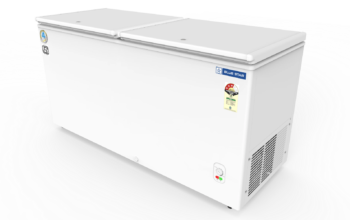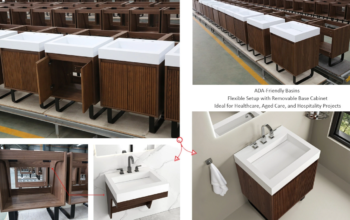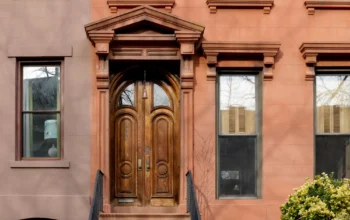Have you ever returned home to find your garage door wide open for any reason? Or heard it moving at odd hours, even though no one touched the remote? If your garage door seems to have a mind of its own, you’re not alone. This issue is more common than you think—and potentially dangerous.
This article dives deep into the causes behind garage doors that open on their own. We’ll explain how to identify the issue, how to fix it, and when to call in a professional.
What’s Going On With Your Garage Door?
When a garage door starts acting up, it typically indicates a mechanical or electrical issue. Sometimes, it’s just a simple error. At other times, it can indicate a more significant problem with your system.
Understanding the difference between garage door problems and automatic garage door issues is the first step. Manual garage doors rely on physical locks and springs. Automatic ones involve sensors, remotes, and motors—all of which can malfunction.
Common Causes of a Garage Door Opening By Itself
Let’s look at the most likely reasons your door might be misbehaving.
1. Faulty Remote Control or Wall Button
- The remote could be sending signals without you pressing it.
- Dirt or corrosion in the wall button may trigger unexpected commands.
- Batteries that are leaking or dying can also send random signals.
2. Stuck or Damaged Garage Door Opener Button
- Over time, physical buttons can get stuck due to dust or wear.
- A jammed button may cause continuous commands to the motor.
3. Interference from Nearby Devices
- Someone nearby may have a similar remote frequency.
- Baby monitors, walkie-talkies, or older wireless devices can interfere.
4. Wiring or Electrical Short
- Frayed wires or poor insulation can cause the opener to malfunction.
- Electrical shorts might send random signals to the control board.
5. Outdated or Glitchy Control System
- Older garage openers may have software bugs.
- Inconsistent signals from old logic boards can trigger unexpected movements.
6. Sensor Misalignment or Dirt
- Most automatic garage doors use safety sensors.
- If sensors are dirty or misaligned, they may react oddly, causing the door to reverse or reopen.
7. Power Surges
- A sudden spike in voltage (like after a storm) can cause the opener to reset or malfunction.
8. Garage Door Set to Timer Mode
- Some smart garage doors have auto-open or auto-close timers.
- A forgotten setting could explain your door’s odd behaviour.
How to Troubleshoot the Problem
Before calling a technician, here’s how you can inspect the issue yourself.
Step 1: Inspect the Remote Control
- Remove the batteries.
- Check if the door still opens by itself.
- If not, the remote may be the issue.
Step 2: Examine the Wall Button
- Look for signs of sticking or damage.
- Test the button multiple times to see if it’s stuck in place.
Step 3: Clear Obstructions from Sensors
- Wipe sensors with a dry cloth.
- Make sure they’re aligned and facing each other properly.
Step 4: Disconnect Power Temporarily
- Unplug the opener.
- Wait a few minutes and plug it back in.
- See if the issue continues.
Step 5: Change the Remote Frequency
- If interference is suspected, consider changing the remote’s frequency.
- Newer models make this process easier. Check the manual.
When to Call a Professional
Some garage door problems are too risky or complex for DIY fixes. You should call an expert if:
- You see exposed or burnt wires.
- The door opens randomly even after a power disconnection.
- The opener is outdated and lacks essential safety features.
- You suspect tampering or a security breach.
A certified technician can also check your opener’s internal circuits, update software, or install security features like rolling codes.
Tips to Prevent Your Garage Door from Opening Unexpectedly
Preventing automatic garage door issues begins with establishing basic habits and performing regular checks.
- Replace the batteries in remotes every 6 months to a year.
- Keep the sensors clean and free from dust or cobwebs.
- Inspect wiring during seasonal maintenance.
- Update your opener if it’s more than 10 years old.
- Set a security code or rolling-code system for added protection.
If your garage is connected to a smart home system, make sure your network is secure. Weak passwords or open networks can leave your devices vulnerable.
Are You at Risk of a Break-In?
While most cases are technical, don’t ignore the possibility of intentional access. If you suspect your remote signal is being cloned or your smart system has been hacked, take immediate action.
- Change all access codes.
- Disable smart access temporarily.
- Install a camera or sensor to monitor garage activity.
A door that opens on its own could be an open invitation to intruders. It’s essential to act promptly and take the situation seriously.
Understanding Modern Garage Door Technology
Today’s garage doors offer a range of safety features, smartphone control, and programmable schedules. However, with these upgrades come increased chances of malfunctions.
Here’s a breakdown of modern features that can contribute to automatic garage door issues:
- Rolling code systems: They help prevent code theft but may glitch during updates.
- Wi-Fi-enabled openers: These allow remote access but are vulnerable to poor connectivity.
- Timer-to-close: This feature might reopen the door if it senses obstruction, even if none exists.
The more technology you add, the greater the chances are for confusion without regular maintenance.
Final Thoughts
A garage door that opens by itself isn’t just a minor annoyance—it’s a potential security threat. Whether it’s due to interference, outdated parts, or software bugs, identifying the cause early can save you from more significant problems.
Make it a habit to inspect your system regularly. If in doubt, don’t hesitate to call a qualified garage door technician. Safety, after all, starts with a door that stays closed when it’s meant to.




